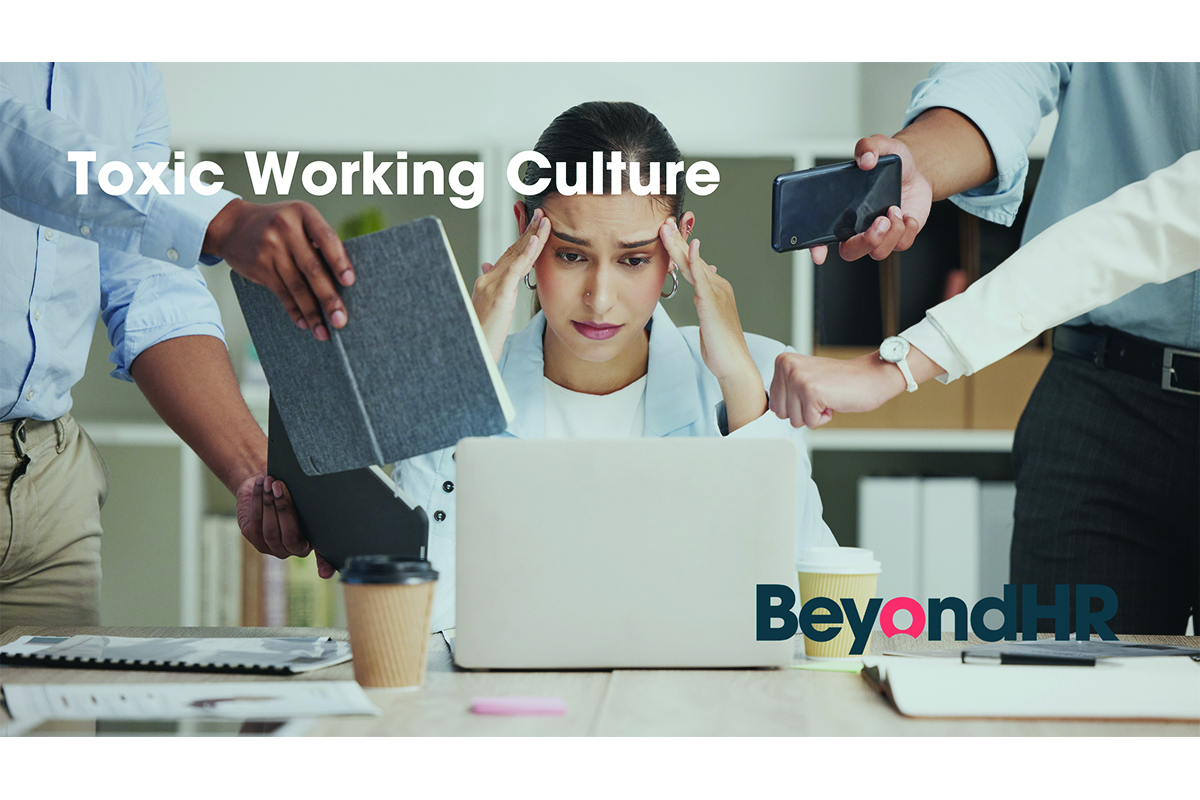
03 Oct 2023
In every organisation, there’s a dream of a harmonious workplace where synergy, collaboration, and success are collective endeavours. However, many face the grim reality of a toxic workplace culture, marked by negativity, distrust, and stress, detrimental to both employees and the overall business.
How Are Toxic Workplaces Created?
Toxic workplaces often originate from managers who lack essential leadership skills and credibility. This deficiency may be due to inadequate training, experience, or both. Such managers may inadvertently foster negativity, which can quickly spread throughout the workforce, causing increased stress levels and absenteeism.
These managers might be power-driven, using others to deflect from their failures and creating an environment where toxicity thrives. Furthermore, a lack of clear communication and transparency can also contribute to the development of a toxic workplace, as employees feel left in the dark and undervalued.
Disadvantages of a Toxic Workplace Culture
A toxic workplace culture presents various significant disadvantages:
Low employee morale
Employees in toxic environments often experience mental health issues, including anxiety, depression, and burnout. The continuous negativity drains their enthusiasm and drive, leading to diminished morale and emotional exhaustion.
Decreased productivity
In toxic settings, employees are less likely to be creative and innovative due to fear of criticism or ridicule. This atmosphere stifles their willingness to share opinions and collaborate effectively, leading to decreased productivity and innovation.
Increased employee turnover
High turnover rates are costly, not just financially but also in terms of lost knowledge and expertise when experienced employees leave. This constant churn creates instability, making it challenging to maintain a consistent and experienced team.
Poor brand reputation
A company known for its toxic culture struggles to attract top talent and may lose valuable business partnerships. In today's digital age, word of mouth and online reviews significantly impact a brand’s reputation.
Legal implications
A toxic culture often leads to legal challenges, including discrimination, harassment, and unfair treatment claims. These not only tarnish the company's reputation but also result in financial losses due to legal fees and settlements.
Identifying Signs of a Toxic Workplace Culture
Early identification of a toxic workplace is crucial. Signs include frequent conflicts and arguments among staff, a significant breakdown in communication, high levels of stress and absenteeism among employees, a lack of work-life balance, and any form of discrimination or harassment.
Steps to navigate out of toxicity as a manager
Navigating out of a toxic workplace requires a strategic approach:
Address the issue
Acknowledge the problem openly and honestly. Conduct confidential surveys, hold one-on-one conversations, and observe team dynamics to understand the issues at hand.
Open Communication
Foster an environment where communication is encouraged. Keep employees informed about the steps being taken to address their concerns, making them feel valued and heard.
Employee Well-being Initiatives
Implement initiatives that support employees’ mental health, such as counselling services, stress management programs, and mindfulness training.
Training and Development
Invest in training programs that equip managers and employees with the skills needed to resolve conflicts amicably and constructively. Diversity and inclusion training is also crucial to foster a respectful and inclusive environment.
Seek External Help
Engage HR consultants or mediators to provide a fresh perspective and offer tailored solutions to tackle specific challenges.
Examples of toxic workplace culture
Toxic workplace cultures manifest in various ways, including:
Recognising these signs early is key to addressing and rectifying them effectively.
A toxic workplace culture is a significant business challenge. As a manager, lead with empathy and champion a culture where everyone thrives. Recognising and addressing toxicity is crucial for employee well-being and is a strategic business imperative, leading to a thriving organisation where everyone succeeds.